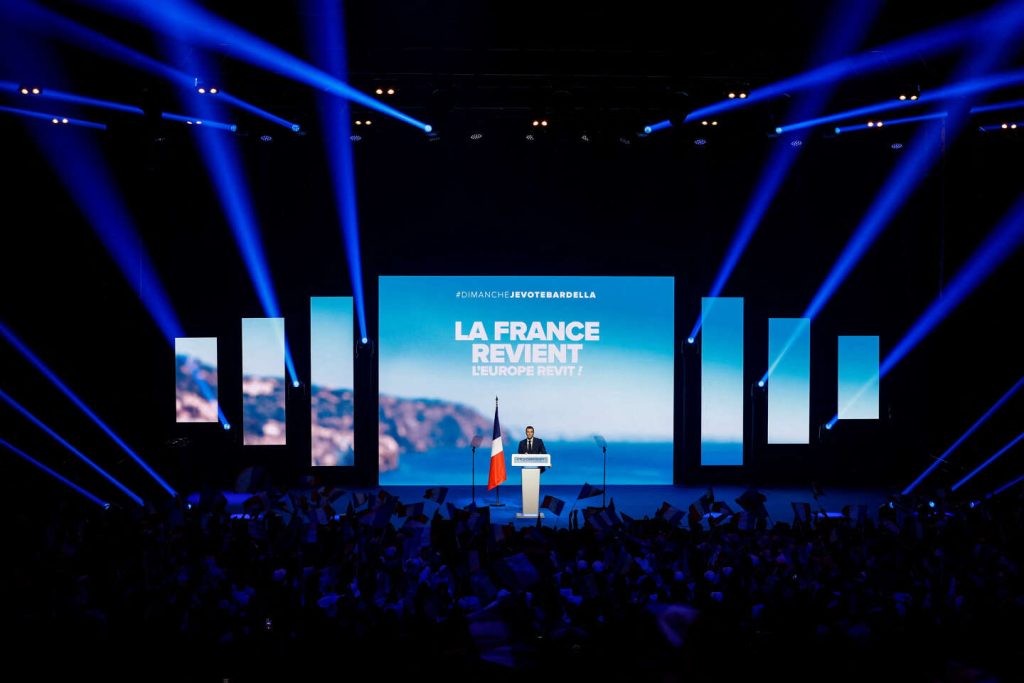The director of the French national gendarmerie, General Christian Rodriguez, criticized an election poster from the far-right party, the Rassemblement National (RN), which depicted a person in a gendarme uniform with the caption “I am a gendarme, I vote for Bardella.” Rodriguez viewed this as a violation of military status. The poster was shared on social media by the RN account, stating that the person on the poster wishes for French citizens to live in a safe country where order is respected and voting for Jordan Bardella on June 9th will achieve this.
Rodriguez expressed his disapproval of the message on social media, stating that it goes against the military code and demanded respect for gendarmes and their status, especially during times when their commitment can lead to serious consequences. The RN defended the publication as “completely legal” since the image did not show the face of a gendarme. They argued that they have published similar visuals for other professions, including one with the slogan “I am military, I vote Bardella” featuring a person in a French military uniform. The party emphasized the importance of voting to avoid the formation of a European army and the sharing of nuclear deterrence.
The concept of duty of reserve requires all public servants to show restraint in expressing personal opinions, whether in writing or speech, during and outside of working hours. This rule also applies to the military, as outlined in the Code of Defense, which states that opinions, including political beliefs, can be expressed outside of service but must adhere to the required level of discretion. The controversy surrounding the RN poster highlights the delicate balance between freedom of expression and the need for public servants and military personnel to maintain a level of neutrality and professionalism.
The dispute between the director of the gendarmerie and the RN over the election poster raises questions about the boundaries of political engagement for military and law enforcement personnel. While individuals have the right to express their opinions outside of their professional duties, there are limitations on how and when these expressions can take place. The case serves as a reminder of the importance of upholding the integrity and neutrality of public service institutions, especially in the highly charged atmosphere of political campaigning.
The incident also sheds light on the ongoing debate in France regarding the role of the military in politics and the extent to which members of the armed forces should engage in public discourse. The controversy surrounding the RN poster underscores the challenges faced by military and law enforcement personnel in navigating the complex intersection of personal beliefs and professional obligations. It also highlights the responsibility of political parties and organizations to ensure that their campaign materials adhere to legal and ethical standards, particularly when involving public service institutions. Ultimately, this episode serves as a reminder of the importance of upholding the principles of democracy and rule of law in a diverse and politically charged society.


